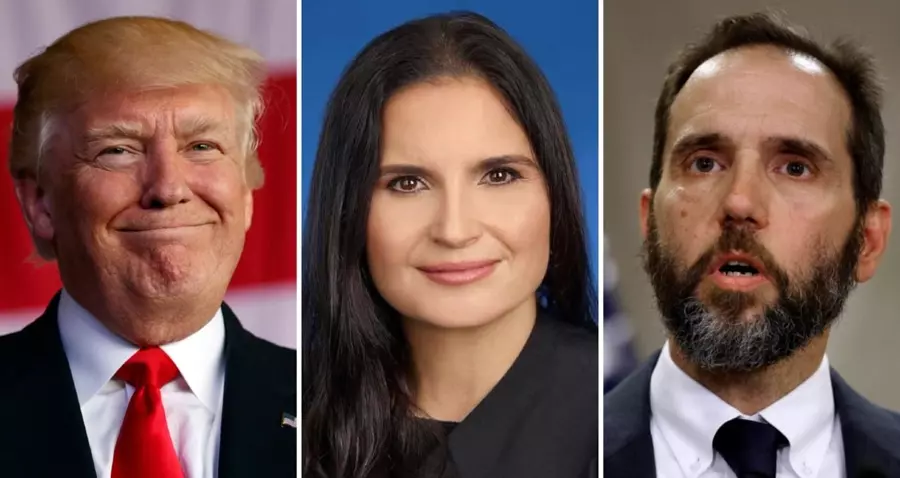Former President Donald Trump’s attorneys have accused federal prosecutors of violating his constitutional rights in relation to a case involving classified documents.

In filings made on Tuesday, Trump’s legal team has called for multiple motions to dismiss the case against him, including one based on “prosecutorial misconduct and due process violations” and another regarding the “unconstitutional” raid on Mar-a-Lago.
The attorneys argue that the warrant used in the raid lacked the necessary specificity required by the Fourth Amendment and was executed in bad faith.
They claim that it allowed for the FBI to search through rooms at Trump’s resort without any valid basis, including private bedrooms belonging to First Lady Melania Trump and President Trump’s youngest son.
The attorneys also request that evidence obtained from the raid, as well as a “subsequent unlawful violation of President Trump’s attorney-client privilege,” be suppressed.
In another motion to dismiss, Trump’s legal team alleges that the National Archives and Records Administration (NARA), the Biden administration, and the Department of Justice (DOJ) “collude[d] in bad faith” to deny President Trump his constitutional rights by using civil authorities to gather evidence for a criminal prosecution.
They argue that NARA officials broke custom and practice dating back to the enactment of the Presidential Records Act by working with the Biden administration to initiate a criminal investigation into President Trump instead of simply collecting designated records.
These filings follow recently unsealed documents from the classified materials case, which revealed that the FBI was authorized to use deadly force during their raid on Trump’s estate in 2022.
This highlights the extreme measures taken by federal law enforcement in the operation.
Recently, U.S.
District Judge Aileen Cannon granted Trump a legal victory in his classified documents case brought by special counsel Jack Smith.
She agreed to extend a deadline for Trump’s legal team and co-defendants, and paused the trial start date indefinitely after initially setting it for May 20th.
Given that there are still unresolved matters in the case and Trump is currently on trial in New York for alleged hush money payments during his presidential campaign, this decision was expected.
Several of the attorneys defending him in the Florida federal case are also involved in the New York case.
Judge Cannon further questioned the capacity of federal prosecutors to bring Trump to trial before the November presidential election, stating that it would be “imprudent” to set a new trial date at this time, according to ABC News.
As Trump seeks to regain the White House, he is currently facing four criminal cases; aside from the New York prosecution, it remains unclear if any of the other three will go to trial before the election.
